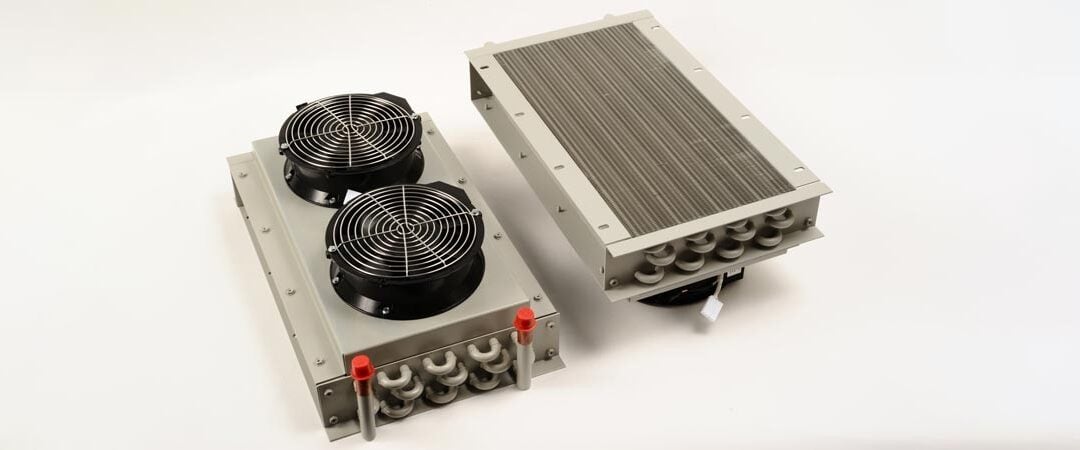
Blog, Liquid Cooling, Thermal
Key Factors that Determine the Cost of Fabricating Heat Exchangers Manufacturing costs can be greatly impacted by demand, but this is not necessarily within the thermal or design engineers’ control. However, you can reduce costs by understanding how core and...

Blog, Liquid Cooling, Thermal
Recirculating chillers are “off-the-shelf” liquid cooling systems that offer precise temperature control and/or cooling below ambient temperatures. Extending the Lifetime and Reliability of Your System Recirculating chillers are used to cool various types...

Blog, Liquid Cooling, Thermal
Key Preventative Measures and Maintenance to Keep Your Chiller Running To ensure a chiller is functioning as efficiently as possible and to minimize the risk of downtime, it’s important to properly operate and maintain it. Just like in a car, there are fluids...

Blog, Liquid Cooling, Thermal
Industrial chillers are commonly used to circulate a constant temperature fluid in a closed loop with liquid cooled instruments and tools in order to increase process repeatability and reproducibility. How Recirculating Chillers Maintain Constant Temperatures The...

Blog, Liquid Cooling, Thermal
Selecting the proper recirculating chiller is a function of four factors: The heat load generated by the device being cooled (Q) The maximum acceptable temperature of the fluid exiting the heat source (TOUT) Available fluid flow rate Ambient operating conditions (V̇)...

Blog, Liquid Cooling, Thermal
How to Calculate Which Fan is Right for Your Application The most well known type of heat exchanger is a car radiator. In a radiator, a solution of water and ethylene glycol, also known as antifreeze, transfers heat from the engine to the radiator and then from the...







